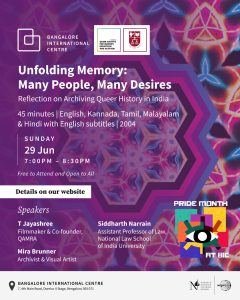 The Queer Archive for Memory Reflection and Activism (QAMRA), housed at NLSIU, is screening independent filmmaker T Jayashree’s ‘Many People, Many Desires’ (2004) on June 29, 2025. The screening will be followed by a panel discussion with T Jayashree and other members of QAMRA – Mira Brunner and Dr. Siddharth Narrain. The session is part of Bangalore International Centre’s Pride Programmes.
The Queer Archive for Memory Reflection and Activism (QAMRA), housed at NLSIU, is screening independent filmmaker T Jayashree’s ‘Many People, Many Desires’ (2004) on June 29, 2025. The screening will be followed by a panel discussion with T Jayashree and other members of QAMRA – Mira Brunner and Dr. Siddharth Narrain. The session is part of Bangalore International Centre’s Pride Programmes.
Session Timings: 7 to 8:30 PM
Screening Duration: 45 minutes
Panel:
1. T Jayashree, Filmmaker & Co-Founder, QAMRA
2. Mira Brunner, Chief Archivist, QAMRA
3. Dr. Siddharth Narrain, Faculty In-charge, QAMRA, and Assistant Professor of Law, National Law School of India University, Bengaluru
RSVP: Click here
About the film
‘Many People, Many Desires‘ is centred around the interviews of many members of the LGBTQ community in Bengaluru at the time of the shooting (2004). The film was shot entirely in a MiniDV tape format. Starting from an exploration of sexuality and human rights, it allows the viewer to hear the first-person narratives of some of those who were engaged with the sexuality movement of the time – whose work is instrumental for the fight for legal rights for queer people in India.
Using legal discrimination against sexual minorities as its starting point, the film explores the relationship between class, sexuality, and gender. The film captures early years in the movement against Section 377 of the Indian Penal Code, a colonial law which criminalized homosexual behaviour and has now, through efforts which included some of those interviewed in the film, been read down.
The panel will talk about what has changed, what has remained the same, and QAMRA’s (the Queer Archive of Memory, Reflection, and Activism) attempts to preserve this history. They will discuss their perspectives on archiving queer material and the responsibilities of preserving what is still in living memory.
About QAMRA
 QAMRA is a multimedia archival project that chronicles and preserves the stories of communities marginalised on the basis of gender and sexuality in India. Its aim is to aid efforts in queer rights advocacy through archival activism, acting as a resource base for activists, students, educators, artists, and scholars working in the area of gender and sexuality. As a repository of narratives, it hopes to enable and further conversations around the history, present, and future of the Indian LGBTQIA+ community.
QAMRA is a multimedia archival project that chronicles and preserves the stories of communities marginalised on the basis of gender and sexuality in India. Its aim is to aid efforts in queer rights advocacy through archival activism, acting as a resource base for activists, students, educators, artists, and scholars working in the area of gender and sexuality. As a repository of narratives, it hopes to enable and further conversations around the history, present, and future of the Indian LGBTQIA+ community.
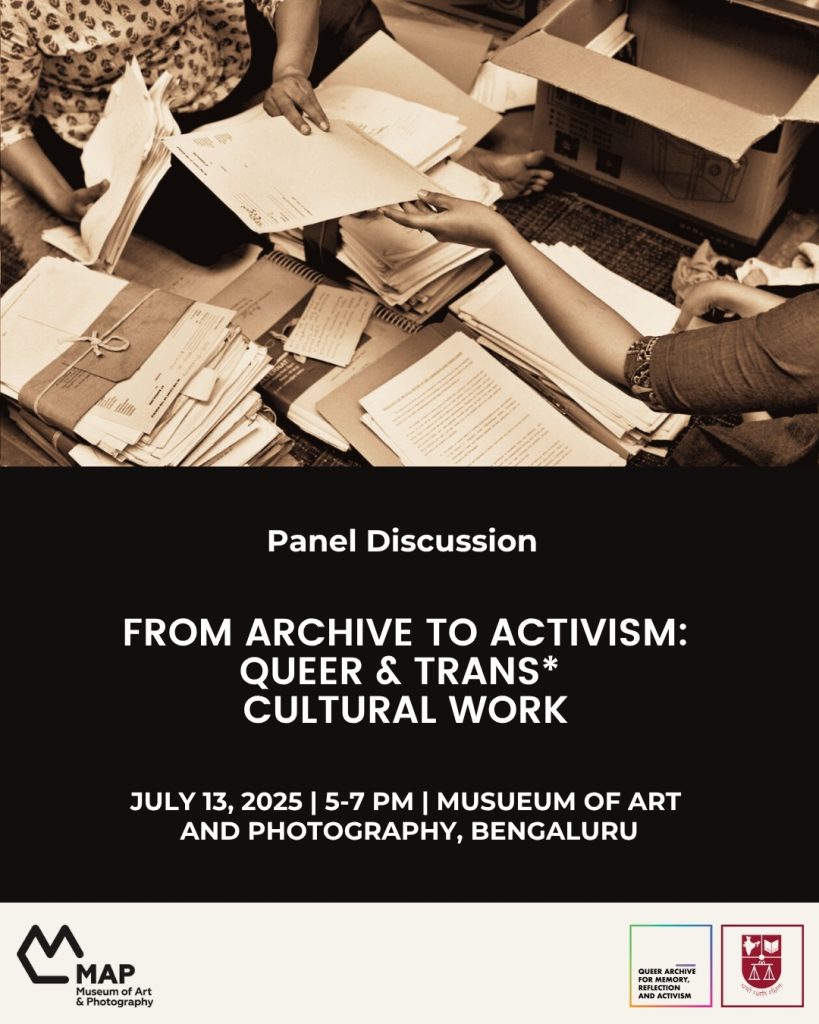 The Queer Archive for Memory Reflection and Activism (QAMRA) is hosting a panel discussion titled ‘From Archive to Activism: Queer & Trans* Cultural Work’ at the Museum of Art and Photography, Bengaluru, on July 13, 2025.
The Queer Archive for Memory Reflection and Activism (QAMRA) is hosting a panel discussion titled ‘From Archive to Activism: Queer & Trans* Cultural Work’ at the Museum of Art and Photography, Bengaluru, on July 13, 2025.
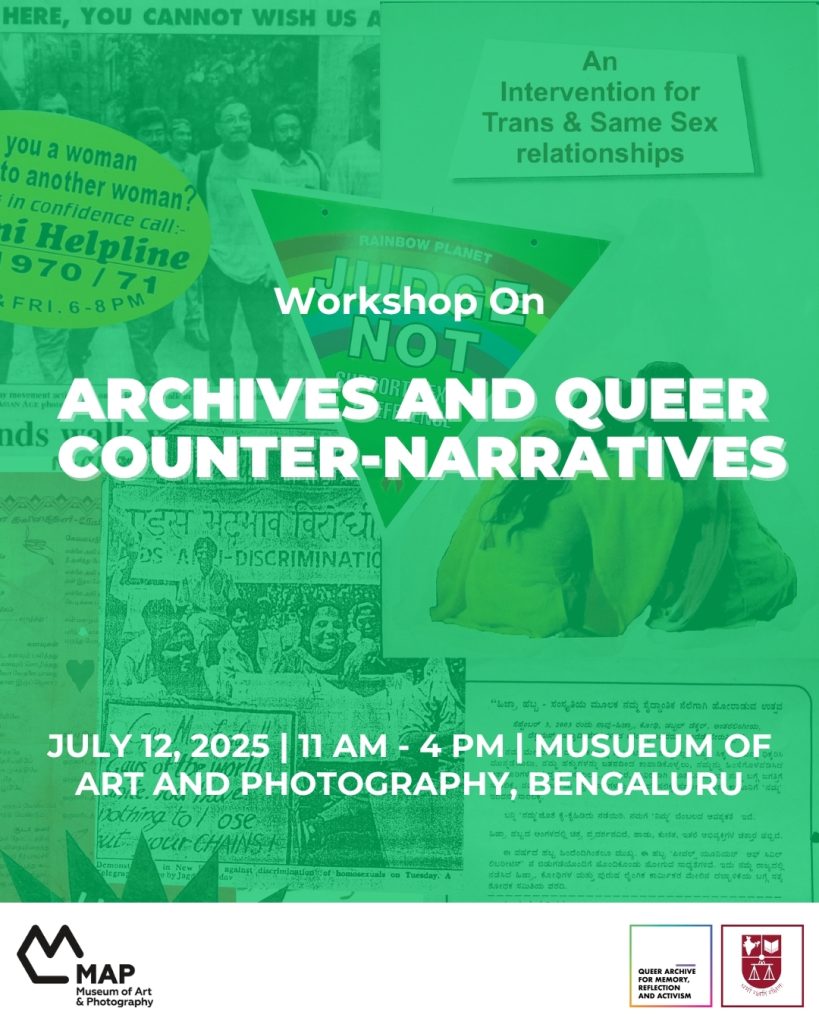 The Queer Archive for Memory Reflection and Activism (
The Queer Archive for Memory Reflection and Activism (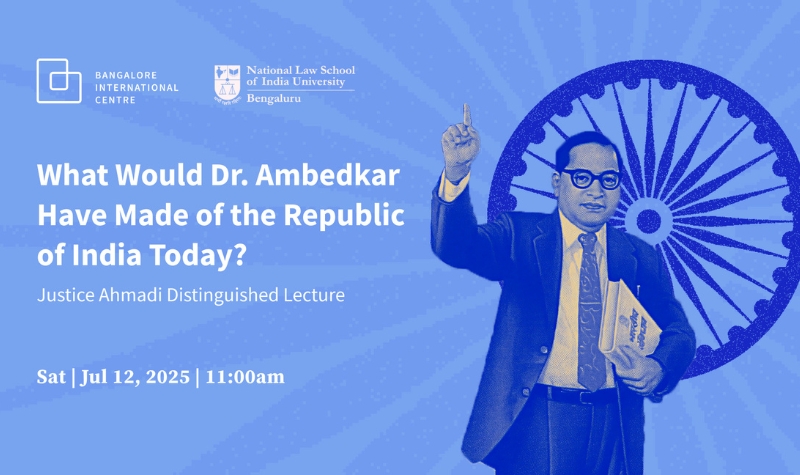 The National Law School of India University (NLSIU), Bengaluru and the
The National Law School of India University (NLSIU), Bengaluru and the 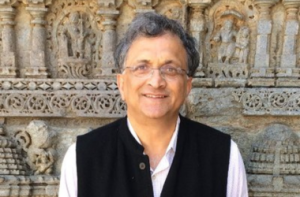 Ramachandra Guha is a historian and biographer based in Bengaluru. His books include a pioneering environmental history, The Unquiet Woods (University of California Press, 1989); an award-winning social history of cricket, A Corner of a Foreign Field (Picador, 2002); and a landmark history of the Republic, India after Gandhi (Macmillan/Ecco Press, 2007; third revised edition, 2023). Having previously taught at Yale University, the London School of Economics, and the Indian Institute of Science, he is currently Distinguished University Professor at Krea University.
Ramachandra Guha is a historian and biographer based in Bengaluru. His books include a pioneering environmental history, The Unquiet Woods (University of California Press, 1989); an award-winning social history of cricket, A Corner of a Foreign Field (Picador, 2002); and a landmark history of the Republic, India after Gandhi (Macmillan/Ecco Press, 2007; third revised edition, 2023). Having previously taught at Yale University, the London School of Economics, and the Indian Institute of Science, he is currently Distinguished University Professor at Krea University. 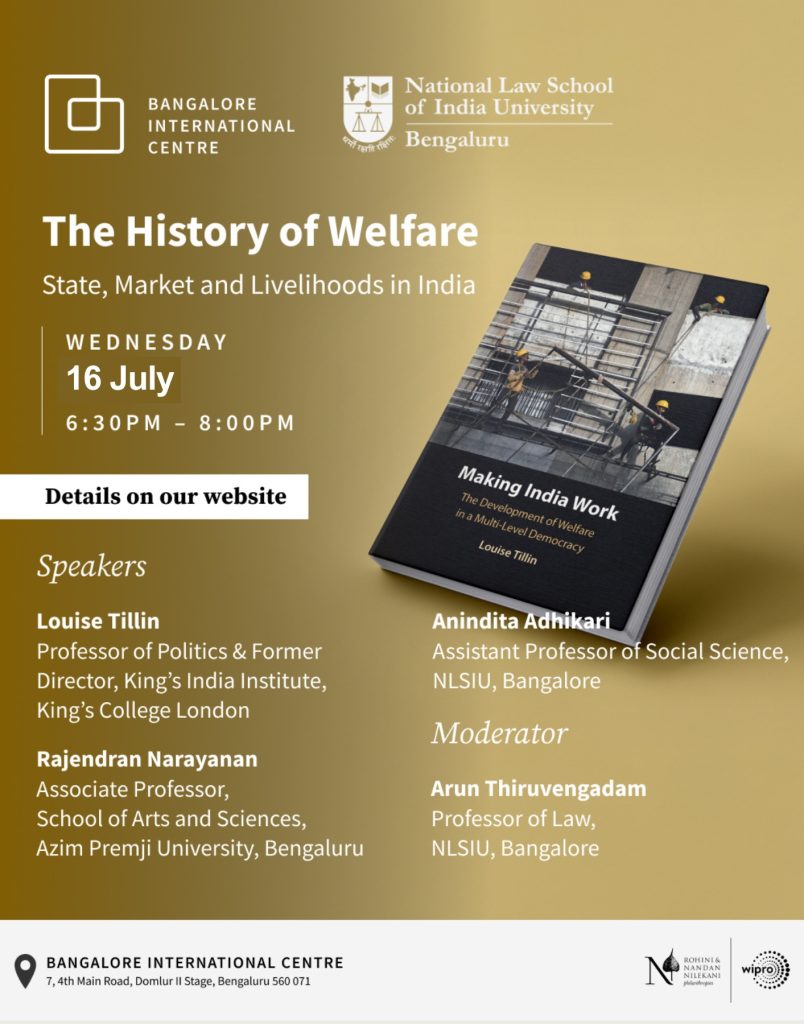 The
The 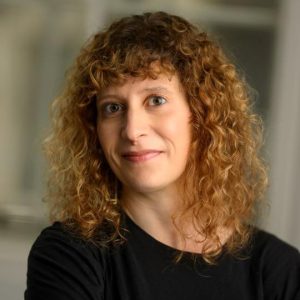
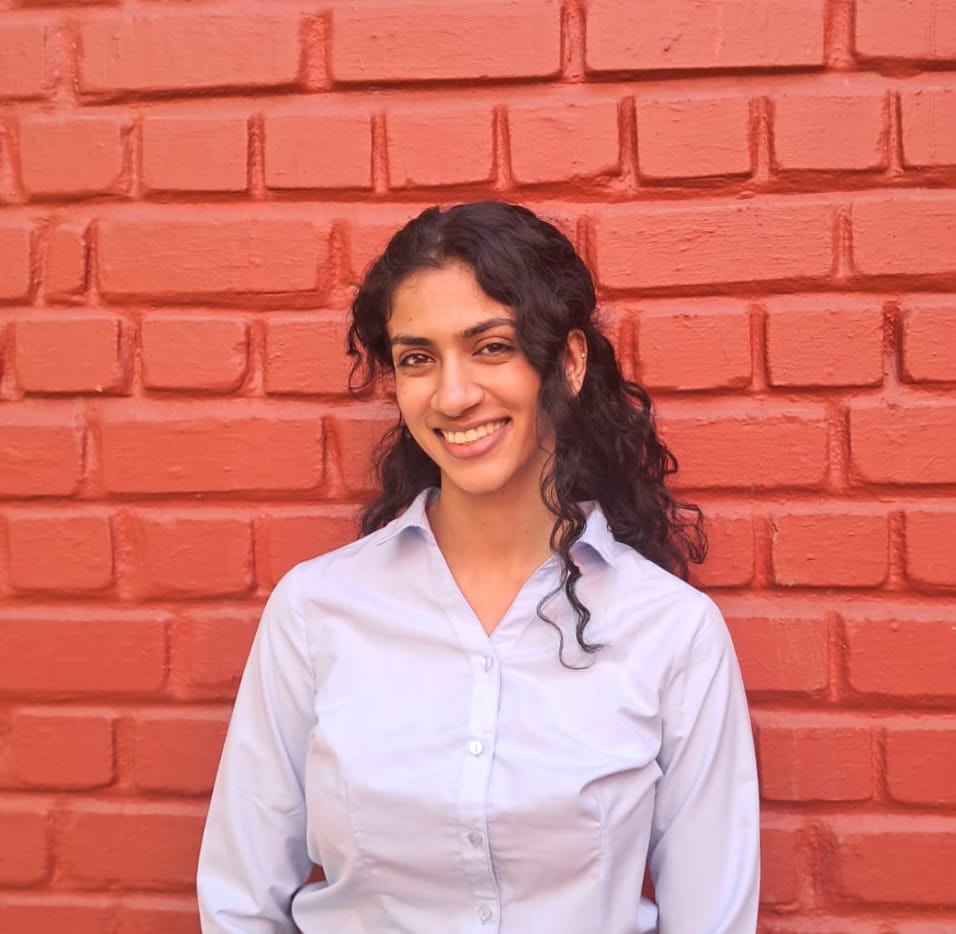 The Career Services Office is organising a session on ‘Building your Rhodes Scholarship Application’ on Wednesday, July 2, 2025. Ms. Vibha Swaminathan, a 2025 Rhodes Scholar-elect from NLSIU, will deliver the session between 3 and 4 pm in room 104 at the OAB. The session is open to NLS students across all programmes and years.
The Career Services Office is organising a session on ‘Building your Rhodes Scholarship Application’ on Wednesday, July 2, 2025. Ms. Vibha Swaminathan, a 2025 Rhodes Scholar-elect from NLSIU, will deliver the session between 3 and 4 pm in room 104 at the OAB. The session is open to NLS students across all programmes and years. The Queer Archive for Memory Reflection and Activism (QAMRA), housed at NLSIU, is screening independent filmmaker T Jayashree’s ‘Many People, Many Desires’ (2004) on June 29, 2025. The screening will be followed by a panel discussion with T Jayashree and other members of QAMRA – Mira Brunner and Dr. Siddharth Narrain. The session is part of Bangalore International Centre’s Pride Programmes.
The Queer Archive for Memory Reflection and Activism (QAMRA), housed at NLSIU, is screening independent filmmaker T Jayashree’s ‘Many People, Many Desires’ (2004) on June 29, 2025. The screening will be followed by a panel discussion with T Jayashree and other members of QAMRA – Mira Brunner and Dr. Siddharth Narrain. The session is part of Bangalore International Centre’s Pride Programmes.
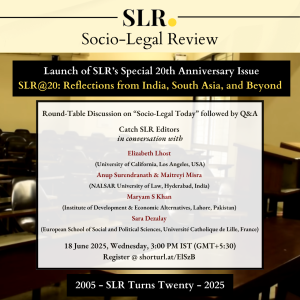 The Socio-Legal Review (SLR) was first published in 2005 by a group of students at the National Law School of India University (NLSIU). Emerging from the broader “law and society” movement, SLR was founded on the growing realisation that law cannot be meaningfully understood in isolation from social and political realities.
The Socio-Legal Review (SLR) was first published in 2005 by a group of students at the National Law School of India University (NLSIU). Emerging from the broader “law and society” movement, SLR was founded on the growing realisation that law cannot be meaningfully understood in isolation from social and political realities.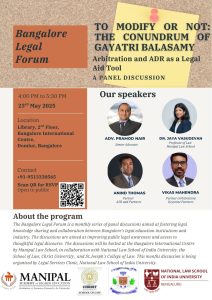 The
The 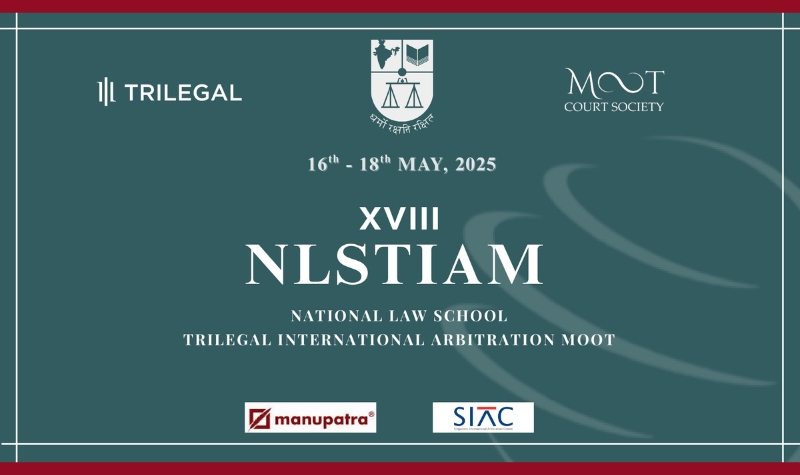 The Moot Court Society at NLSIU is pleased to announce the XVIIIth edition of the National Law School Trilegal International Arbitration Moot (NLS-TIAM) for the academic year 2024-25. The competition shall be conducted offline at the NLSIU Campus from May 16-18, 2025. As a part of the NLS-TIAM, the Moot Court Society is also pleased to host the VIth edition of the National Law School Trilegal International Arbitration Conference (NLS-TIAC) on May 17, 2025.
The Moot Court Society at NLSIU is pleased to announce the XVIIIth edition of the National Law School Trilegal International Arbitration Moot (NLS-TIAM) for the academic year 2024-25. The competition shall be conducted offline at the NLSIU Campus from May 16-18, 2025. As a part of the NLS-TIAM, the Moot Court Society is also pleased to host the VIth edition of the National Law School Trilegal International Arbitration Conference (NLS-TIAC) on May 17, 2025.